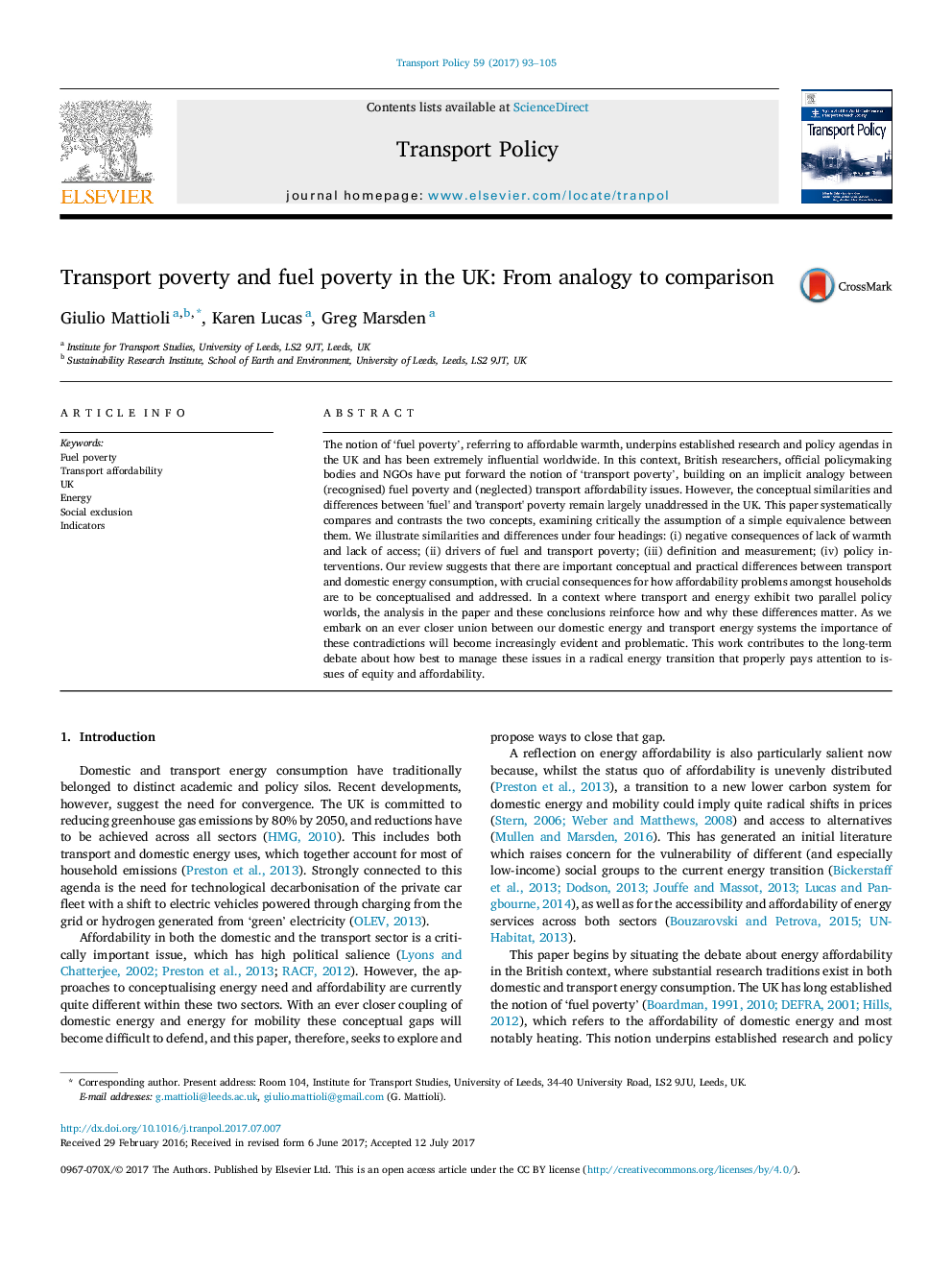ترجمه فارسی عنوان مقاله
فقر حمل و نقل و فقر سوخت در بریتانیا: از تقریب به مقایسه
عنوان انگلیسی
Transport poverty and fuel poverty in the UK: From analogy to comparison
| کد مقاله | سال انتشار | تعداد صفحات مقاله انگلیسی |
|---|---|---|
| 129554 | 2017 | 13 صفحه PDF |
منبع

Publisher : Elsevier - Science Direct (الزویر - ساینس دایرکت)
Journal : Transport Policy, Volume 59, October 2017, Pages 93-105
ترجمه کلمات کلیدی
فقر سوخت، مقرون به صرفه حمل و نقل، انگلستان، انرژی، محرومیت اجتماعی، شاخص ها،
کلمات کلیدی انگلیسی
Fuel poverty; Transport affordability; UK; Energy; Social exclusion; Indicators;

